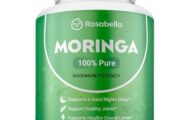A new study published in the Journal of Food Protection has found that only 48% of consumers wash their hands after handling raw eggs. Eggs can be contaminated with Salmonella bacteria, and that food-pathogen combination sickens thousands of Americans every year. Researchers were from RTI International, Tennessee State University, and Kansas State University. The study was partially funded by the Department of Agriculture's National Institute of Food and Agriculture. A 2013 web survey of 1,504 adult grocery shoppers was conducted. Based on self-reported data, most consumers store eggs in the fridge, as recommended, for no more than 3 to 5 weeks, as recommended.But after cracking eggs, 48.1% of respondents washed their hands with soap and water. And more than half of respondents … [Read more...]
Consumers Will Pay More for Eggs Because of Bird Flu
The highly-pathogenic avian influenza has spread across the central United States, killing about 39 million chickens, turkeys, and other birds since December 2014. This will affect egg supplies and prices, and may even affect prices for Thanksgiving turkeys this fall. Goldman Sachs reports that U.S. consumers will probably pay $8 billion more to buy eggs this year. That is an increase of at least 75% from last year. Corporations that buy eggs in bulk will also spend much more money. Large chains are concentrating on securing egg supplies. According to the American Egg Board, U.S. consumers ate almost 260 egg per person last year. The bird flu was introduced into this country by wild migrating birds, according to the World Organisation for Animal Health. If the virus moves east, the … [Read more...]
After Easter, a Word About Egg Safety
After Easter, most people have hard cooked eggs that they have dyed for the holiday. The FDA wants you to know some food safety tips for handling this food. Fresh eggs can contain Salmonella bacteria that are in the actual egg itself, not just on the shell. The FDA estimates that 142,000 illnesses are caused by consumers eating eggs that are contaminated with this pathogenic bacteria every year in the United States. Although there are regulations in place to help prevent contamination of eggs on the farm and during shipping, eggs will contain Salmonella. The bacteria is actually in the hen's ovaries, and it will then be in the egg itself. Consumers are the last measure of defense against food poisoning from eggs. All cartons of shell eggs that have not been treated to destroy … [Read more...]
Avoid Food Poisoning from Eggs During Holidays (and Throughout the Year)
Preparing and sharing holiday treats is one of the best parts of the holiday season. But foods containing eggs can cause illness if not prepared properly. Whether you are making eggnog or cookies, follow these food safety tips to safely prepare food and drinks that contain eggs. First, the facts. Raw eggs are not safe to consume. There is no split opinion on this in the world of food safety. The U.S. Department of Agriculture (USDA) estimates that 350,000 Americans are sickened every year with Salmonella poisoning from raw or undercooked eggs. In fact it's so common to get Salmonella from eggs, the combination of food and germ was ranked the No. 1 germ and food pair in 2009 and 2010, according to the Centers for Disease Control and Prevention (CDC). There have been food poisoning … [Read more...]
Salmonella Outbreak in England Sickens 247 People
An outbreak of Salmonella Enteritidis PT14b in England has sickened almost 250 people, according to Public Health England. That is an increase from 158 cases reported in early August 2014. The government also stated that overall case reporting slowed over the past week. Public health officials say that "there is now evidence to indicate that cases in Europe with the same strains of Salmonella infection were associated with consumption of eggs from a single source. This egg supply also reached distributors and food outlets in England, but at this stage we cannot conclusively demonstrate that this is the infection source in this country." The case count by region is as follows: Hampshire (99 cases), London (30 cases), Cheshire and Merseyside (39 cases), and West Midlands (54 cases). … [Read more...]
Spring Celebration Egg Food Safety Advice
The folks at FightBac.org are offering some tips for keeping your food safe during spring celebrations. Easter and Passover feature lots of eggs, which can be contaminated with Salmonella bacteria, especially Salmonella enteritidis. Clean hands are key. Always wash your hands with soap and warm water for 20 seconds before and after food handling. Be careful about cross-contamination. Always wash utensils, food contact surfaces, cooking equipment, blenders, cutting boards, etc. in hot water and soap between uses. Since bacteria grow in moist, protein-rich foods, always refrigerate eggs and foods made with egg. Make sure your refrigerator is set at 40°F or below, and always use a refrigerator thermometer to monitor the temperature. Remember the two hour rule: after two hours, … [Read more...]
Radio Waves Kill Salmonella Bacteria in Raw Eggs
A study published in Agricultural Research magazine has found that radio waves can kill Salmonella bacteria in raw eggs without affecting taste or texture. Since one of every 20,000 eggs produced in the U.S. has a high risk of being contaminated with the Salmonella bacteria, and since many people eat raw or undercooked eggs, this is an important finding. At least 3,750,000 contaminated eggs are sold every year in this country. Salmonella bacteria are killed by heat. Pasteurized eggs are safer, but they can be difficult to use, especially since the egg whites do not whip to the same volume as untreated eggs. Pasteurized eggs are immersed in hot water and held at a minimum temperature for about an hour to kill the pathogenic bacteria. In the study, scientists tested 4,000 fresh shell … [Read more...]
Health Alert For Processed Egg Products Unfit for Consumption
The USDA is issuing a public health alert for OvaEasy processed egg products because the company declined to expand its recall for Salmonella. The company allegedly recorded false lab reports, and produced negative results for Salmonella when the results were actually positive. They also reported that they had sampled the products for bacterial contamination when they had not. An ongoing investigation by FSIS has uncovered these issues. The company is Nutriom LLC of Lacey, Washington. Because of these factors, the government says the products are unfit for human consumption. The long list of unfit products can be seen at the FSIS web site, along with Julian dates and product sizes. They include OvaEasy Plain Whole Egg, Bak-Klene Egg Wash, OvaEasy UGRA, Reduced Cholesterol, Vitovo Low … [Read more...]
Denmark Successfully Controls Salmonella in Poultry
An article in the Oregonian details how Denmark started an intensive effort twenty years ago to try to control Salmonella infections in poultry after an increase in human illness. In the U.S., at least 200,000 people are sickened ever year by Salmonella in poultry. The USDA launched a Salmonella Action Plan last year that has been widely criticized because it just controls contamination during poultry processing. Meanwhile, Denmark has practically eradicated Salmonella in chicken. There is zero tolerance for Salmonella bacteria in poultry in Denmark. In the U.S., Salmonella contamination is accepted as a given. The huge Foster Farms chicken Salmonella outbreak from early 2013 through this year, which has sickened at least 14,000 consumers and hospitalized hundreds, is considered … [Read more...]










